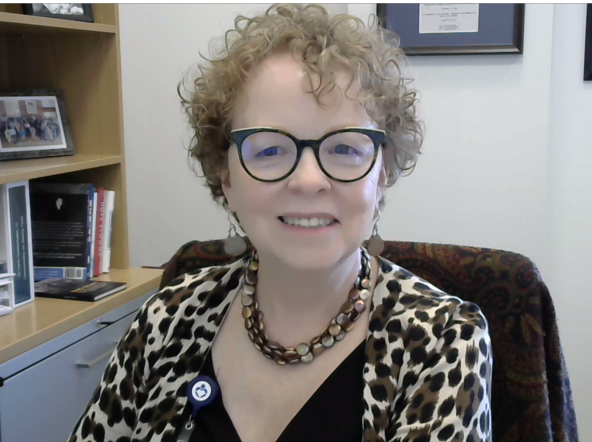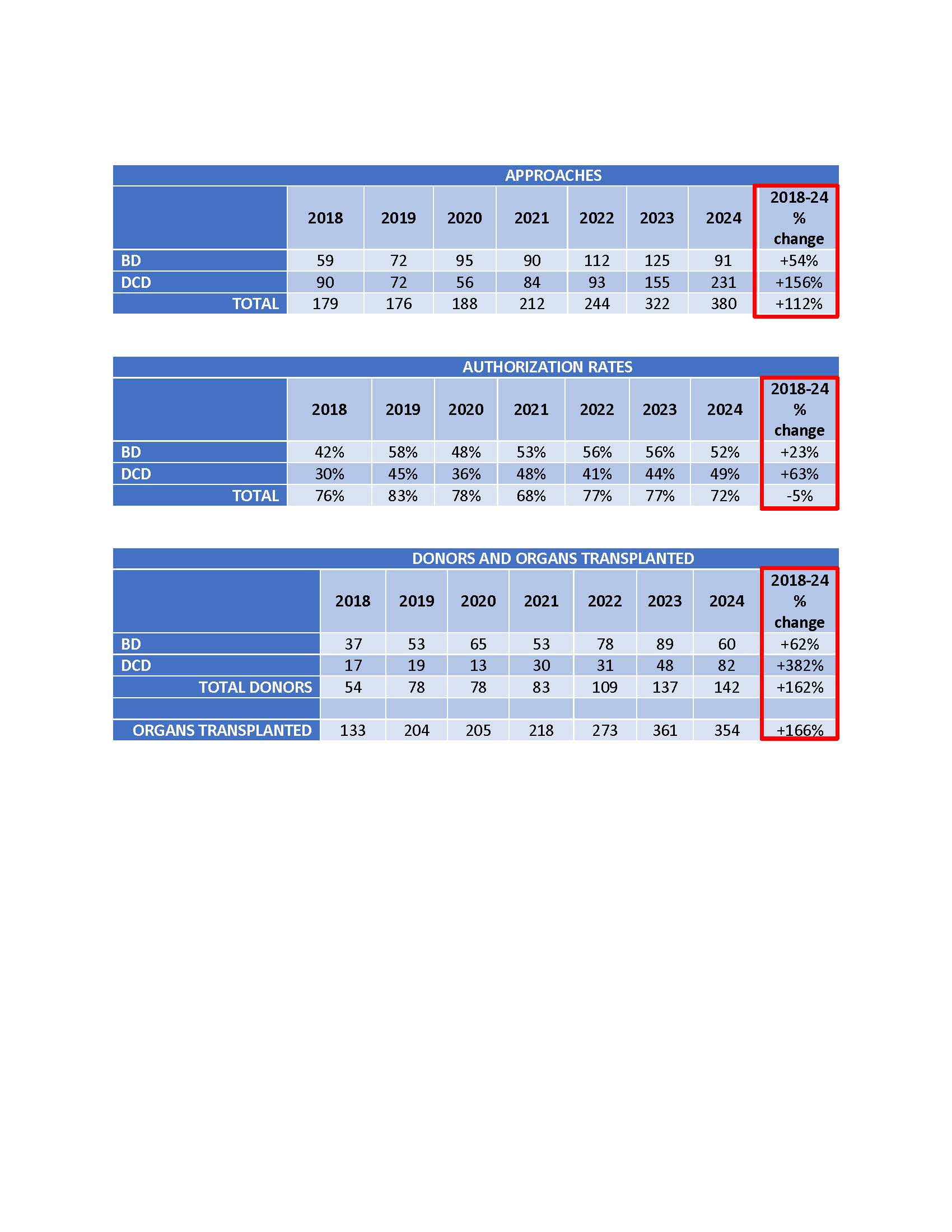
Theresa A. Daly is Vice President of Gift of Life Institute, an international training center for organ and tissue donation professionals, located in Philadelphia, Pennsylvania, and has more than 25 years of experience in the field of organ and tissue donation. Theresa oversees the day-to-day operations of the Institute and the Transplant Pregnancy Registry International. Previously, she served as Associate Director Medical School Curriculum Office at the Perelman School of Medicine at the University of Pennsylvania. Theresa has presented at both national and international forums on educating the donation professional. She has a Bachelor of Science in Business/Management and a Master of Science in Instructional Technology.
OPO sustains increased donation rates achieved during a 5-year period of standardizing authorization and referral response practices through consultation with an international training center
Theresa Daly1, Patricia Mulvania1, Andrew Signond2, Daniel DiSante2, Karin Nybo Rebehn2, Michael Thibault2, Richard Hasz1.
1Gift of Life Institute , Philadelphia, PA, United States; 2Center for Donation and Transplant, Albany, NY, United States
Introduction In 2018, a U.S. OPO with 2.7 million population serving 43 hospitals, had an authorization rate of only 42%, resulting in 54 donors with 133 organs transplanted. Leadership made the decision to seek help to redesign their donor referral responses, authorization practices, and implement a standardized bi-weekly post donor case review. The OPO reached out to an international training center (ITC), affiliated with the U.S.’ leading OPO in organ donations and transplants.
Methods The OPO and ITC examined current practices and challenges. The ITC made recommendations for 1) authorization standards of practice 2) training on referral response goals, expanded identification of donor potential, and 3) strategies to create and preserve BD and DCD organ donation opportunities.
Between 2018 and 2022, the ITC facilitated 6 team trainings. The team trainings were supplemented with 44 individual scenario-based family donation conversation (FDC) simulations and 45 enrollments in eLearning modules. Initial focus was on FDC fundamentals and maximizing donation potential of each referral. As staff skill and confidence improved, training transitioned to managing more challenging, complex situations. In 2021, the ITC clinical leader began facilitating bi-weekly case debriefs. Staff were engaged in new ways, including practices to examine referral response, identification of donor potential, and creation and preservation of BD and DCD opportunities. The forum created a distinct shift in the group’s critical thinking and problem-solving capabilities. Staff became open to receiving / providing constructive critique and increasingly took initiative to report using new strategies to successfully overcome donation challenges. This forum has proven to be pivotal in continued improvement and in 2022 OPO leadership assumed facilitation of the debriefs.
Between 2022 and 2024, the OPO continued with the debrief and held staff across the organization to the established standard of practice. Additionally, the ITC continued to engage new OPO staff through its virtual classroom training, OnDemand training and WebEncounter tool, a web-based role play.
Results From 2018 through 2024, the OPO increased family approaches by 112% (179 to 380). Overall, organ donors increased by 162% (54 to 142) with brain dead donors increasing by 62% and DCD donors by 382%, resulting in an increase of 166% (133 to 354) in organs transplanted.

Conclusion An OPO whose leadership committed to improving clinical practices by standardizing the response to donor referrals, recognizing expanded donor potential, improving FDC practices, and adopting strategies to create and preserve BD and DCD donation opportunities in partnership with an ITC, led to sustainable, improved donor and transplant outcomes. Consistency in practice and the system-wide commitment from the OPO leadership led to measurable improved performance outcomes.